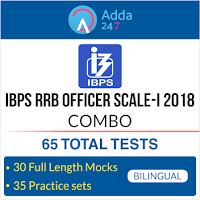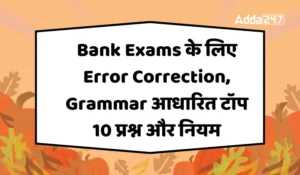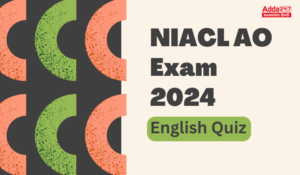(a) He could work on the project as he is both interested in it and familiar with the problems involved.
(b)He could work on the project as he is both interested in it and has some familiarity with the problems involved.
(c)He could work on the project as he is interested in it and familiar with the problems involved both.
(d)He could work on the project as he is both interested in it and familiar with the problems involved also.
(e) No correction required
Sol. He could work on the project as he is both interested in it and familiar with the problems involved. Use Parallel structure with elements joined by a correlative conjunction.
(a) Bajaj’s sewing machine was considered both expensive and also complicated to use for general use.
(b) Bajaj’s sewing machine was considered to be very expensive and too complicated for general use.
(c) Both a and b.
(d) Bajaj’s sewing machine was considered to be very expensive, but too complicated for general use.
(e) No correction required
Sol. Bajaj’s sewing machine was considered to be very expensive and too complicated for general use.
Q3. Julia’s parents told her that she must agree to either attend the college or either to work in the family business.
(b) either attend college or working in the family business.
(c) either attending college or to work in the family business.
(d) All of above
(e) No correction required
Sol. either attend the college or to work in the family business. Correlative pairs such as either … or, neither… nor, not only … but also, and whether … or also require parallelism. When you see one of these pairs in a sentence. Check to make sure that the words or group of words immediately following each conjunction are in the same form.
Q4. Ritik is not only an excellent actor but he sings.
(b) Ritik is not only an excellent actor but also a good singer.
(c) Ritik is not only an excellent actor but he is also a good singer.
(d) All the above
(e) No correction required
Sol. Ritik is not only an excellent actor but also a good singer. Use parallel structure with elements joined by a correlative conjunction.
Q5. We’ll never forget the principal, who never had a kind word for anyone, who had no sympathy, was short tempered, and cruel.
(b) We’ll never forget the cruel, unsympathetic, short tempered principal, who never had a kind word for anyone.
(c) We’ll never forget the principal who is cruel, unsympathetic, and also short-tempered, and who never had a kind word for anyone.
(d) We’ll never forget the principal who was also cruel, was unsympathetic, was short-tempered, and who also never had a kind word for anyone.
(e) No correction required
Sol. We’ll never forget the cruel, unsympathetic, short tempered principal, who never had a kind word for anyone. Just like verbs, adverbs and adjectives in a list must agree Descriptive words are easy to replace with wordy phrases.
Directions (6-10): Rearrange the following five sentences (A), (B), (C), (D) and (E) in the proper sequence to form a meaningful paragraph, then answer the questions given below them.
A. It will take extraordinary political commitment and liberal public funding during the 11th Plan for affordable housing to become a credible goal.
B. The National Urban Housing and Habitat Policy of the United Progressive Alliance Government seeks to make access to housing, long acknowledged as a fundamental right, a reality for all.
C. The task is staggering even if we go by conservative estimates.
D. The housing shortage to be met during the Plan is 26.53 million units, which include the backlog from the 10th Plan.
E. If the existing stock of poor quality dwellings and the growing urbanization–driven demand are taken into account, the real deficit will be even higher.
Q6. Which of the following should be the FIRST sentence?
(a) A
(b) B
(c) C
(d) D
(e) E
Sol: Clearly C must be followed by D, which must be further followed by the E as E reiterates the housing shortage and says that the real deficit will be even higher. D and E provide the statistical proof of the staggering task mentioned in C. So this leads us to two options (b) and (d). Among them (b) seems to be more appropriate as B again emphasises on but is being said is A and also that B cannot be the concluding statement of the paragraph. Hence, ABCDE gives the correct arrangement, A
(b) B
(c) C
(d) D
(e) E
Sol. ABCDE gives the correct arrangement, B
(b) B
(c) C
(d) D
(e) E
Sol. ABCDE gives the correct arrangement, C
(b) B
(c) C
(d) D
(e) E
Sol. ABCDE gives the correct arrangement, D
(b) B
(c) C
(d) D
(e) E
Sol. ABCDE gives the correct arrangement, E
Directions (11-15): Each question below has two blanks, each blank indicating that something has been omitted. Choose the set of words for each blank that best fits the meaning of the sentence as a whole.
Q11. I am not ……………… to sell you my house unless you offer a more ……………… price.
(a) agree, better
(b) prepared, realistic
(c) ready, correct
(d) having, actual
(e) convinced, actual
Sol. prepared, realistic makes the sentence grammatically correct.
Q12. Due to ……………… rainfall this year, there will be ……………… cut in water supply.
(b) meagre, least
(c) insufficient, no
(d) surplus, abundant
(e) abundant, considerable
Sol. As the sentence talks about a cut in water supply hence scanty and substantial will fit into the sentence. Scanty means small or insufficient in quantity or amount and the meaning of substantial is of considerable importance, size, or worth.
Q13. In a changing and ……………… unstructured business environment, creativity and innovation are being ……………… demanded of executives.
(b) highly, extremely
(c) increasingly, moderately
(d) progressively, increasingly
(e) highly, speedily
Sol. progressively, increasingly makes the sentence grammatically and contextually correct.
(a) happy, have
(b) unhappy, arrive
(c) sure, come
(d) pleased, over
(e) wonderful, again
Sol. pleased, over makes the sentence grammatically and contextually correct.
Q15. Efforts to ……………… the issue will not be successful ……………… both sides continue to blame each other.
(b) discuss, unless
(c) address, whether
(d) settled, because
(e) close, although
Sol. resolve, if perfectly fits into the sentence.






 Practice for English Section: 15 Cloze T...
Practice for English Section: 15 Cloze T...
 Bank Exams के लिए Error Correction, Gram...
Bank Exams के लिए Error Correction, Gram...
 English Quiz For NIACL AO Mains 2024 Exa...
English Quiz For NIACL AO Mains 2024 Exa...










